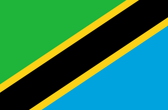
Call 0330 880 3600 Calls may be monitored or recorded. Opening Times.
- TRAVEL INSURANCE
- COVID-19 COVER
- More Options
- Help & Advice
- Existing Customers

Call 0330 880 3600 Calls may be monitored or recorded. Opening Times.

Need help?
UK Customer Services0330 880 3600*
Open Monday to Friday 9:00am to 6pm, Saturday 8:30am to 4pm and closed Sundays.
*Calls are recorded for training and quality purposes.

Official name: United Republic of Tanzania
Capital city: Dodoma (administrative), Dar es Salaam (commercial hub)
Languages spoken: Swahili, English
Population: Around 65 million
Currency: Tanzanian shilling (TZS)
Time zone: GMT+3
Driving side: Left
Climate: Tropical along the coast and islands, temperate in the highlands, with wet and dry seasons
Tanzania is one of Africa’s premier safari destinations, home to the Serengeti, Ngorongoro Crater, and the snow-capped Mount Kilimanjaro. The spice island of Zanzibar offers stunning beaches, historic Stone Town, and rich cultural heritage, making the country a perfect mix of adventure and relaxation. Travellers are drawn to its wildlife, landscapes, and warm hospitality.
While Tanzania is considered relatively stable, petty crime such as bag-snatching and pickpocketing can be an issue in larger cities like Dar es Salaam. Laws are strictly conservative in some areas: same-sex relationships are criminalised, and public displays of affection may draw negative attention. Visitors should dress modestly, especially on Zanzibar, where Islamic traditions are more pronounced.
Tanzania is located in East Africa, bordered by Kenya and Uganda to the north, Rwanda, Burundi, and the Democratic Republic of the Congo to the west, Zambia, Malawi, and Mozambique to the south, and the Indian Ocean to the east. The country features the Great Rift Valley, vast savannah plains, tropical coastline, and Africa’s highest peak, Mount Kilimanjaro. Lake Victoria, Lake Tanganyika, and Lake Nyasa form part of its borders.
Julius Nyerere International Airport (DAR) in Dar es Salaam and Kilimanjaro International Airport (JRO) are the main gateways, with Zanzibar also having an international airport (ZNZ). Safari circuits are a major draw, with tours typically arranged through operators. Popular activities include climbing Mount Kilimanjaro, diving in Zanzibar, and exploring Selous Game Reserve. Road travel can be challenging, with poor conditions in rural areas, and long distances often requiring internal flights for convenience.
UK nationals require a visa to enter Tanzania, which can usually be obtained online as an e-visa or on arrival. Passports must be valid for at least six months and have at least one blank page. The British High Commission in Dar es Salaam provides consular services, with additional representation in Zanzibar.
The Tanzanian shilling (TZS) is the local currency. US dollars are also widely accepted, especially for tourist services, safaris, and accommodation. ATMs are available in major towns and cities, though less reliable in rural areas. Credit cards are accepted in high-end hotels and lodges but cash is preferred elsewhere.
Healthcare facilities in Tanzania are basic outside Dar es Salaam and Arusha, and even in major cities, serious conditions may require evacuation. Comprehensive travel insurance, including medical evacuation, is essential. Yellow fever vaccination is required if arriving from an at-risk country, and malaria is widespread, so prophylaxis and mosquito protection are strongly advised. Bottled or filtered water should always be used, and travellers should take care in hot conditions to avoid dehydration.